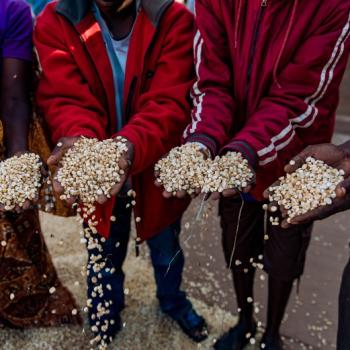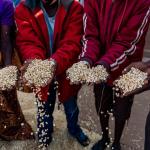 The Healing Power of Food: How Faith-Based Communities Are Tackling Hunger
The Healing Power of Food: How Faith-Based Communities Are Tackling Hunger
Is there a reality about the healing power of food? We’ve all heard the saying: “An apple a day keeps the doctor away.” But food is more than just a source of sustenance. It is a symbol of community, culture, and faith. Food is an essential part of their religious practices for many faith-based communities. It is a way to connect with others and show compassion towards those in need. In this article, I will explore how faith-based communities use food’s healing power to tackle hunger.
The Role of Faith-Based Communities in Combating Hunger
Faith-based communities have long been at the forefront of efforts to alleviate hunger. From food banks and soup kitchens to community gardens and meal programs, these communities have been providing food assistance to those in need for decades. But their efforts go beyond just providing food. They also offer a sense of community and support to struggling people.
One of the reasons faith-based communities are so effective at combating hunger is their ability to mobilize volunteers. Many faiths place a strong emphasis on charitable giving and service to others. This results in a large network of volunteers who are willing to donate their time and resources to help those in need.
Examples of Faith-Based Hunger Relief Programs
There are countless examples of faith-based hunger relief programs around the world. Here are just a few:
1. The Salvation Army: The Salvation Army is a Christian organization that operates in over 130 countries. They provide food assistance through their food banks, soup kitchens, and meal programs. They also provide emergency assistance such as shelter and clothing.
2. Islamic Relief USA: Islamic Relief USA is a Muslim organization that provides food assistance to people of all faiths. They operate food banks, distribute food packages, and deliver meals to those in need. They also offer long-term solutions such as agricultural development projects and water and sanitation programs.
3. Amma’s Kitchen: Amma’s Kitchen is a Hindu organization providing free vegetarian meals to needy people. They operate in several cities across the United States and have served over 2 million meals since their inception.
4. Mazon: A Jewish Response to Hunger: Mazon is a Jewish organization that works to end hunger in the United States and Israel. They provide grants to organizations that are working to combat hunger and advocate for policy changes that will improve access to food.
The Healing Power of Food
Food has the power to heal both the body and the soul. Faith-based communities understand this and have been using food to provide comfort and nourishment to those in need for centuries. But the healing power of food goes beyond just the physical benefits. Sharing a meal with others can provide a sense of community and belonging that is essential to our well-being.
In addition to providing food assistance, many faith-based communities also offer nutrition education and cooking classes. These programs can help people learn how to prepare healthy, affordable meals and make better food choices. By empowering people to take control of their health, these programs are helping to break the cycle of poverty and hunger.
Conclusion
Faith-based communities are an essential part of the fight against hunger. They provide food assistance, a sense of community, and support to those in need. By using the healing power of food, these communities are making a difference in the lives of millions worldwide. If you are interested in getting involved, consider volunteering at a local food bank or soup kitchen. Together, we can work towards a world without hunger.













